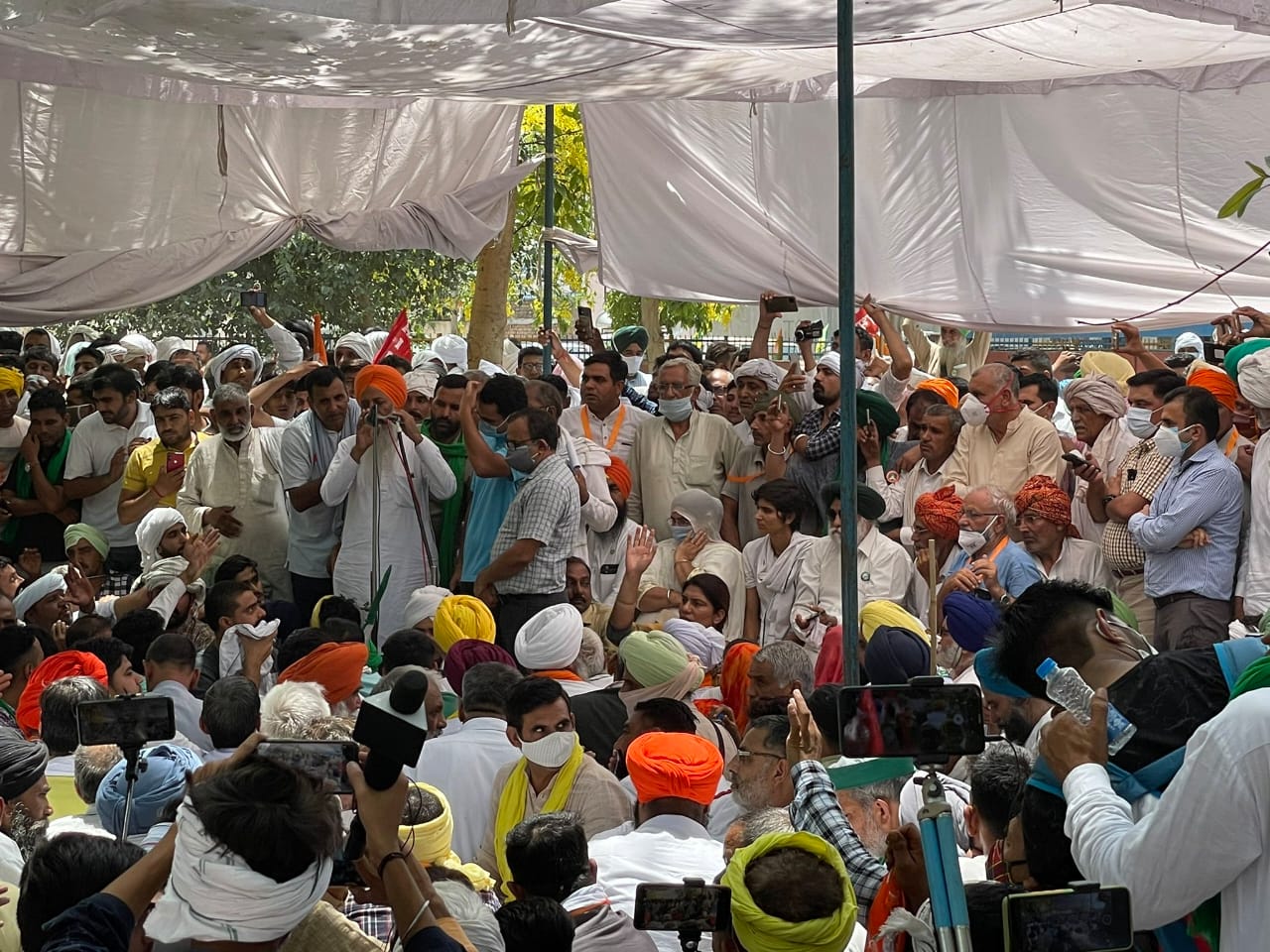
The Federal webinar: Are farmers vote-bank fodder for political parties?
As the farmers prepare to leave for their villages in Punjab, Haryana and Uttar Pradesh, The Federal asks: Are they vote-bank fodder for political parties?

Thousands of farmers who were camped on the borders of Delhi for the past 13 months started returning to their homes, in Punjab, Haryana and Uttar Pradesh, on Saturday (December 11) following the repeal of the contentious farm laws.
The farmers came together and forced the powerful Centre to back down and pull the legislations, making this the most successful farmer agitation the country has witnessed. The government has also promised to set up a committee to take a call on the Minimum Support Price (MSP) – a core demand of the farmers.
As the protesters return to their towns and villages, this is perhaps the right time to ask the question: Are farmers vote-bank fodder for political parties?
The Federal on Saturday organised a live webinar to discuss the issue. Joining us were: Devinder Sharma, food and trade policy analyst, Mohali; R Ramakumar, professor, School of Development Studies, Tata Institute of Social Sciences; Ravishankar Mantha, CEO Agrisk Data Analyst, Mumbai; and Harish Damodaran, journalist, New Delhi.
The discussion was moderated by The Federal editor-in-chief, S Srinivasan.
In their introductory remarks the panellists agreed that the agricultural sector in the country was in need of urgent reforms – but not the kinds that the government had proposed.
Devinder Sharma agreed that farmers had indeed be treated as vote-bank fodder over the years. “They are eulogised before every election, they are told their crises will be addressed and promised prosperity. But once the elections are over they are forgotten,” he said.
“Look at 2014 when Prime Minister Narendra Modi went around promising MSP 50 per cent over the cost of production promised by the Swaminathan Committee,” Sharma said.
“Prior to that when Parkash Singh Badal was in the election arena he had promised free electricity – although farmers had not asked for it… same pattern we see… [Former chief minister] Amarinder Singh is on record promising to wipe off loans…”
Reform did not mean privatisation, Sharma said, adding what the farmers were demanding were “real reforms” in the form of income guarantees.
Ramakumar called the three farm laws “unconstitutional” because they were brought in invoking Section 33 of the Concurrent List to which Entry 26 and 27 of the State List had been linked. He said agriculture was a state affair. “Entry 14 [agriculture] is part of the State List.”
Ramakumar said the laws had “no demonstrable benefits” either.
He said there was a real fear among farmers that the laws would benefit big corporates and that India was going down the path of the western world, where large agribusinesses have pushed out local farmers.
Ramakumar said the “APMC system is extraordinarily useful”, but it required reforms. He called for more mandis and better infrastructure in those mandis.
Ravishankar Mantha said farmers were the country’s biggest risk-takers who needed facilitation, not support. Successive steps to support them had “crippled their thinking and spirit of entrepreneurship”, he added.
Damodaran said it was precisely the failure of farmers to act as a “vote-bank” that had led to their neglect. They must vote as farmers, not Hindus or Muslims or Jats of Sikhs, he said.
“I wish they were a vote bank, and a lobby. This is the first time that we have seen them emerge as a lobby and vote bank.
“One positive thing to come out of this is that farm issues are now centre-stage,” he added.
See the full webinar above.


